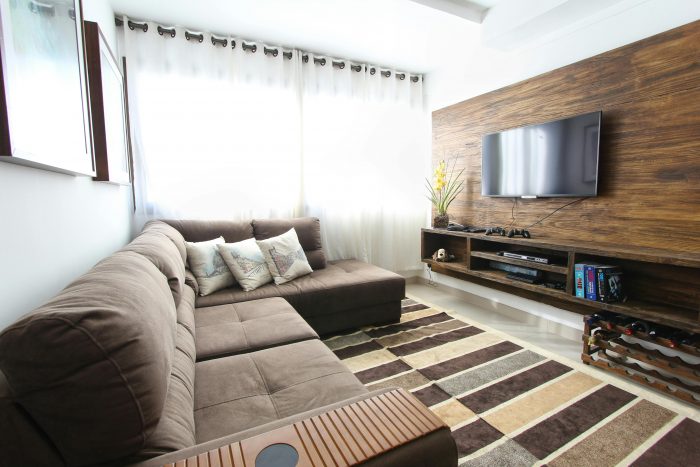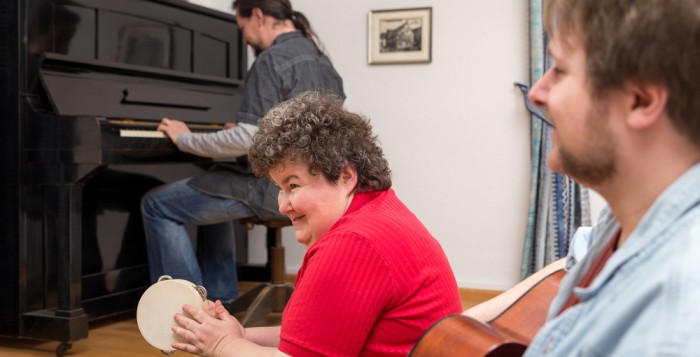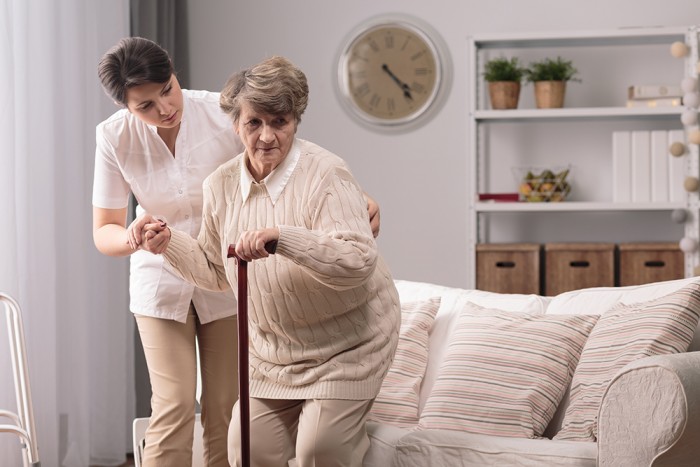Residential Habilitation
ODP Seeks Provider Work Group Members to Join Emergency Planning and Continuity Work Group (EPCWG)
The Office of Developmental Programs (ODP) is looking for provider representatives for an Emergency Planning and Continuity Work Group. Representatives from RCPA members that render residential habilitation and/or day services who are interested can contact Tim Sohosky by June 11, 2025.
The first initiative the group will focus on is reviewing and providing feedback on a Hazard Vulnerability Analysis (HVA) tool for residential habilitation and day services settings. This tool is essential in identifying potential risks and ensuring that emergency planning measures are comprehensive and effective. Given the increasing number of natural disasters, ODP anticipates providers may find this tool very helpful. Ultimately, ODP will make this tool, accompanying training, and technical assistance available to providers to use (voluntary).
By volunteering for this small work group, representatives will:
- Contribute professional knowledge to strengthen emergency preparedness;
- Collaborate with other dedicated providers and stakeholders;
- Help shape a more resilient community; and
- Apply a hazard analysis tool and develop potential action steps for their own agency/agencies.
ODP anticipates convening an HVA tool review meeting to discuss and review and will provide a virtual option to accommodate schedules. Tool review and feedback is expected to be three (3) meetings of 1 – 3 hours each over the next few months. On-going work group meetings would be quarterly for 90 minutes – 3 hours.
For Questions or Additional Information
Please contact Tim Sohosky with any follow-up or inquiries related to this update.
ODP Room and Board Training Bulletin and Webinars Released
The Office of Developmental Programs (ODP) released the Room and Board Bulletin, which was initially released in March 2025. ODP extends gratitude to all stakeholders who participated in the development of the bulletin.
ODP hosted two webinars; both were recorded, and the links are below for viewing.
Room and Board Training for Residential Habilitation and Life Sharing Professionals
The first webinar was targeted towards professionals, Residential Habilitation providers, and Life Sharing providers, in order to provide an explanation of Room and Board polices and regulations, how the polices should be implemented, and an overview of the attachments of the bulletin.
Room and Board Training for Individuals and Families
The second webinar was created for individuals and families. Individuals who receive Residential Habilitation (who live in a group home) or Life Sharing must have a Room and Board contract. This webinar covers the reason for the Room and Board contract, what will be covered within the contract, and an overview of the bulletin, including an explanation of the Room and Board policies and regulations.
Clarification of Room and Board Issued for Individuals Enrolled With ODP
The Office of Developmental Programs (ODP) has shared Bulletin 00-25-01: Room and Board for Individuals Enrolled With the Office of Developmental Programs and 5 accompanying documents:
- Guidance for Calculating Room and Board
- Room and Board Calculator
- Guidance for SNAP Benefits and Group Living Arrangements
- Room and Board Residency Agreement § 6100.687
- Room and Board Residency Agreement – LS § 6100.687
The sixth document referenced in the bulletin, a version of the Room and Board Agreement translated in Spanish, will be released soon. Stakeholders will be notified when this version of the agreement is ready for use.
This bulletin is to clarify Room and Board requirements outlined in 55 Pa. Code Chapter 6100 (relating to Services for Individuals with an Intellectual Disability or Autism).
ODP has scheduled two trainings:
- Room and Board Training: For Residential Habilitation & Life Sharing Professionals
Friday, March 28, 2025, 1:00 pm – 2:30 pm
If you are a professional, please register here. - Room and Board Training: For Individuals and Families
Thursday, April 3, 2025, 11:30 am – 1:00 pm
If you are an individual or family member, please register here.
These trainings will include:
- The intent of Room and Board;
- An explanation of Room and Board policies and regulations;
- An explanation of policy implementation; and
- An overview of the attachments to the bulletin.
There will be time during the sessions to answer questions submitted by participants during the webinars. For this reason, ODP kindly asks stakeholders to save questions about the bulletin until after the training is held.
Please see the bulletin for additional details and information.
Home and Community-Based Services Settings Clarification
The Office of Long-Term Living (OLTL) recently shared additional guidance for providers related to the Centers for Medicare & Medicaid Services (CMS) Home and Community-Based Services (HCBS) Settings Final Rule.
This clarification applies to Residential Habilitation and Personal Care Home Providers.
Regulations at 42 CFR 441.301(c)(4)(vi)(B) require that participants in residential settings have the ability to close and lock doors within their living units. As a part of the Office of Long-Term Living (OLTL) residential provider reviews, it was found that several sites did not meet this requirement. As remediation, some providers opted to have participants sign a form stating that they do not wish to have a lock on their doors, which OLTL’s settings review panel accepted as compliant.
The Centers for Medicare & Medicaid Services (CMS) has reviewed OLTL’s oversight activities and has deemed that participant sign-off waiving installation of locks does not sufficiently satisfy the requirement. CMS has determined that all doors with access to participant units or private spaces (such as a bedroom) must have locks installed. The participant’s choice is whether to utilize the lock or not. Based on this feedback, as OLTL moves forward with ongoing oversight of HCBS settings requirements, all doors to participant units/private spaces in residential settings will be required to have working locks in order to be deemed compliant for future settings reviews.
ODP Updates AAW Provider Information Table
The Office of Developmental Programs (ODP) has updated the AAW Provider Information Table to reflect the following updates:
- The addition of the American Sign Language (ASL)-English Interpreter Service. This new service has been added to ensure effective communication for those participants that utilize ASL.
- Residential Habilitation Provider Qualifications have been updated to reflect additions designed to ensure all residential providers are financially prepared, new providers have prior experience before delivering residential services, and services will continue without interruption when organizational changes occur at the executive level.
- Assistive Technology devices that cost less than $750 do not require an independent evaluation by a professional certified by SHIFT, an online education and accreditation platform, but may be completed if the service plan team believes it to be beneficial.
- Transportation service limit has been increased to $10,000 per participant’s service plan year, which includes both Transportation-Trip and Transportation-Public.
- The Transportation service section has also been updated to include guidance previously released in ODP Announcement 24-005: Adding the Transportation Service to an Individual Support Plan (ISP) in the Adult Autism Waiver (AAW). The information also includes a change to how Transportation-Public is added to the ISP.
- The Community Transition service has been updated to allow for non-recurring set-up expenses for individuals who are transitioning from another provider-operated living arrangement to a living arrangement in a private residence where the person is directly responsible for their living expenses.
- The Career Planning and Supported Employment services sections have been updated to include information previously released in ODP Announcement 20-004: Clarifications and Training Requirements for Adult Autism Waiver (AAW) Employment Services.
- Other updates and changes to AAW services due to the January 1, 2025, Waiver Amendment.
Please view the announcement and table for additional information and details. New services, updated language, and changes to services are highlighted in gray in the table.
Changes to Enrollment Process for Residential Habilitation Life Sharing and Supported Living Services Effective January 1, 2025
The Office of Developmental Programs (ODP) has shared communication ODPANN 24-129. This announcement informs potential providers and stakeholders of changes to the enrollment process for NEW providers seeking to offer Residential Habilitation, Life Sharing, and Supported Living services in the Consolidated or Community Living Waivers by December 31, 2024. Potential new providers will not be eligible to provide residential services effective January 1, 2025. Enrollment for new providers of these services is closed.
Please view the announcement for information and details.
ODP Publishes Corrected IDD Waiver Fee Schedule Rates
Today the Department of Human Services (Department) published final notice of Fee Schedule Rates for services funded through the Consolidated, Community Living, Person/Family Directed Support (P/FDS), and Adult Autism Waivers and the Department-established fees for base-funded services as a correction to the rates previously published August 1, 2024.
Due to a calculation error, the Department has made corrections to the Fee Schedule Rates for the following services funded through the Consolidated, Community Living, and P/FDS Waivers and base-funding:
- Community Participation Support, effective July 1, 2024; and
- Life Sharing Without Day 1-person needs group 3 and 4, effective October 1, 2024.
Additionally, due to a mistake in aligning the procedure code with the correct Statewide fee, the Department is republishing the Fee Schedule Rates for the following services funded through the Adult Autism Waiver effective July 1, 2024:
- Residential Habilitation
- Specialized Skill Development
- Supported Employment
- Career Planning
- Therapies
- Day Unit Respite
- 15-Minute Unit Respite
- Supports Coordination
- Transportation — Trip
This publication presents an opportunity for providers to appeal these specific rates. The deadline for filing an appeal for these rates is December 2, 2024.
For further information, view ODPANN 24-107 or contact Carol Ferenz, IDD Division Director.
Attention Residential Habilitation, Life Sharing, and Supported Living Providers
In order to continue providing residential services after December 31, 2024, residential service providers must complete and return the Office of Developmental Programs (ODP) Agreement for Provision of Residential Services. A copy of the agreement and accompanying cover letter will be sent to your agency within the next 24 hours. The documents will be emailed to your agency’s primary QA&I contact as listed on MyODP. Completed Agreements must be submitted no later than July 31, 2024. If your agency does not receive these materials, or if your QA&I contact has changed, please contact ODP Provider Enrollment.
Additional Guidance for Providers on NG5 Released
As of December 2, 2023, Residential Habilitation procedure codes that reflect Needs Group 5 (NG5) have been loaded into the Home and Community Services Information System (HCSIS). These procedure codes have not been automatically added to provider service offerings. Providers will need to add the appropriate NG5 procedure codes via the service management screens in HCSIS. The instructions for adding a service can be found on the HCSIS Provider Updates Tip Sheet.
For any future NEA NG5 requests, please contact the rate setting mailbox for guidance. Previous communication regarding NG5 can be found here.
















